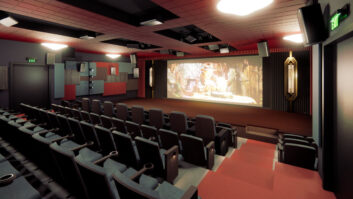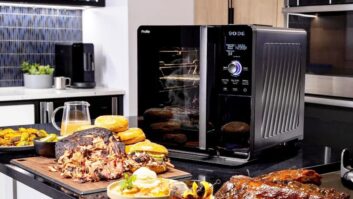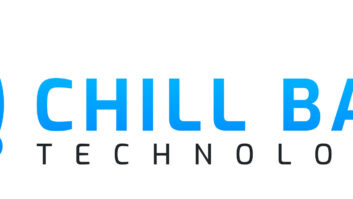CARLSBAD, CALIF
. — The AVC Group, the
new business group formed earlier this year to
combine three Linear-owned residential installation
companies — Niles, Xantech and Elan
Home Systems — recently expanded its grouplevel
management ranks with the appointment
of the group’s first chief technology officer, finance
VP and operations VP.
AVC Group president Mark Terry, a 17-year
Harman International veteran, also created
a new corporate headquarters for the group
here, essentially moving all of the Niles operation
and most of the Elan team out west.
Terry, who has been relatively quiet since
taking his new role, sat down for an exclusive
interview just prior to CEDIA Expo 2010 in
Atlanta. Here’s what he had to say about the
AVC Group’s transition so far, his plans for the
brands, and even his opinion about the future
of the custom installation industry.
Even though you’ve been quoted about taking
your new position, could you backtrack
and reiterate what it was that attracted you to
this position and convinced to you leave the
world of consulting for another full-time gig?
Terry:
It’s right up the alley of the kind of
thing that I’ve done before, taking a group of
disparate companies and combining them together
to create something that’s more effective.
When you have a whole lot of brands, I
think it’s a unique opportunity.
There’s two ways to play in the market, I
think if you’re going to be significant, you can
have the single mega-brand, i.e. the Sony-type
players, and then you can have a collection of
brands like ours, where brands represent independent
categories and specializations, which
are things that are valuable to a customer. So
I think I saw this as an opportunity to do that
again. That’s what brought me into it.
One of the big changes so far was the decision
to create a new headquarters and moving
parts of the company into one place. Can you
explain the rationale for doing this and the expected
benefits?
Terry:
Clearly it’s a lot more efficient to put
it all under one roof to get better cooperation.
We’re consolidating back-office functions,
which would be of no surprise. Having redundant
accounting, supply chain, and warehousing
is not an efficient way to collectively run
the company. The other thing is that it’s important
having people working closely together
and communicating and getting to know each
other.
We can’t forget that, before this, the group
saw each other more as competitors than partners.
Being together, side by side, really helps
build the esprit de corps.
Explain a little bit further the locations that
will remain intact and what those represent
again.
Terry:
Well, it’s pretty simple. Research,
development, and repair will be consolidated
in Lexington, Ky. We’re moving engineers from
Niles and Xantech there to the Elan facility,
and that will be the joint R&D facility. We also
have an R&D operation up in Marblehead, Mass., the former
home of HomeLogic doing software and IP-based
development for us, and we’re bringing more people in to
bolster that.
And that’s just a matter of having existing facilities that
were suitable?
Terry:
Yes. They’re there and in place and we have a lot
of tribal knowledge in those locations of people who have
been working on these products for a long time and really
understand the technology. We don’t want to re-invent
that wheel, so it’s worked out. We’ll also have some engineering
out in California as well, so we expect to have different
projects working in some different areas, and I think
we can get the best of both worlds.
Can you break it down and be specific about what each
brand represents and what their strengths are?
Terry:
Clearly Elan offers higher-end, higher-priced,
more IP-based whole-home automation. That’s more of
their thing: complete systems, including automation and
lighting control, security, video and all of that. Niles has really
been more of an audio/video entertainment company
— lot of emphasis on audio, high-quality speakers, audio
distribution and control, and that’s really been their forte
and they do exceptionally well with it and have a great history
in that.
I’ve always thought of Xantech as a widget company,
a toolbox, the go-to company for solutions when you’re
doing an install and hey this thing doesn’t work with that.
And that’s really who they are and that’s represented in the
kind of IR products and converters and baluns and all the
stuff that they do.
That’s also very complementary for the other brands,
because there’s widgets that don’t make sense for Elan
to carry by themselves but Xantech would be the perfect
place to have them. And then ATON is our low-cost solution
[which is] competitively priced, pre-packaged, easyto-
install kind of systems, get into multi-room inexpensively.
It’s a very distribution-oriented product.
And Sunfire is more of our home theater. It’s our audiophile
product. It’s more of a traditional speaker/home
theater product line. So the brands are really quite different
in what they do, and they overlap in some areas but
surprisingly less than you think. And as we go forward in
product development and growth, we’ll focus more on
the strengths and less on the competitive aspects.
It seems you’re in a position with the group to not
try to be all things to all people or a one-stop shop that
ends up not serving the dealer as well as you intended.
Terry:
Exactly, I think you hit right on the head. One
of the frustrations of so many dealers we talk to is that
everybody has come out with everything, and they don’t
need everything from everybody.
And it’s been awfully easy for all kinds of brands to
offer a broad range of products, not particularly deep,
but broad, and then they go to the dealers and want
them to sell a broad range of products and there’s not
a lot of advantage for a dealer to sign up with a smaller
vendor that’s got a broad range.
It’s much better for him to be with a larger company or
a larger group of companies that are more specialized.
Unless you’ve taken the Crestron- or the Sony-type of
approach of being big and doing everything well. I think
we provide a very viable alternative for them. And it also
allows the dealer to add more value. If a dealer goes
in there, and he’s really customized a system, and he’s
optimized and used a number of brands, and chosen
the right pieces for the right system, then I think the
perceived value for the customer is greater than if he
sold a one-brand system.
Jeremy Glowacki is editorial director of Residential
Systems, a sister publication of TWICE at NewBay
Media.













